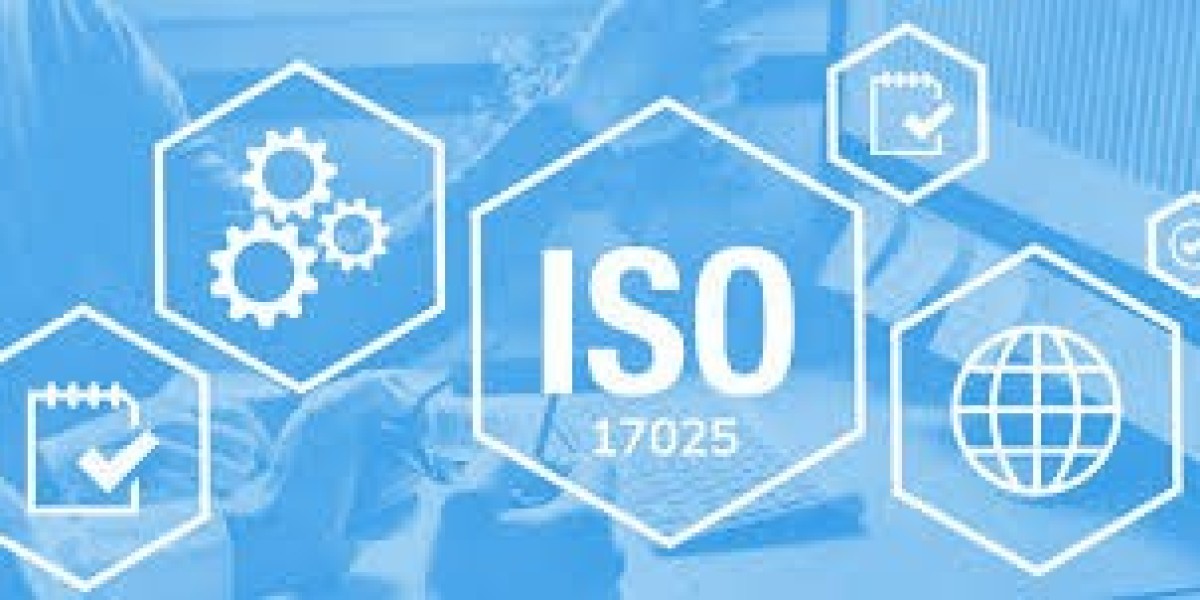ISO 17025 is the international standard for testing and calibration laboratories, outlining the requirements for the competence of laboratories and their ability to produce reliable and accurate results. This standard is vital for laboratories across a range of industries, including manufacturing, pharmaceuticals, and environmental science, to ensure the accuracy, consistency, and reliability of test and calibration services. ISO 17025 training is essential for laboratory professionals who aim to meet these standards and enhance the quality of their operations. In this article, we will explore four key aspects of ISO 17025 training: its importance, the core components of the training, the benefits it offers, and how to choose the right training course.
1. The Importance of ISO 17025 Training
ISO 17025 certification ensures that laboratories operate with the highest levels of accuracy and consistency. As laboratories play a crucial role in various industries, ensuring the quality and reliability of their results is paramount. ISO 17025 training is essential for professionals who wish to meet these stringent standards and improve their laboratory operations.
ISO 17025 training focuses on enhancing the laboratory’s competence in testing, calibration, and maintaining quality management systems. By undergoing this training, laboratory staff can better understand the standard’s requirements, including the procedures and practices necessary for compliance.
Additionally, ISO 17025 training fosters a culture of continual improvement in laboratories. As technology advances and new methodologies emerge, having a solid understanding of ISO 17025 allows laboratories to stay current with evolving industry standards and regulations, ensuring that they remain competitive and maintain customer trust.
2. Core Components of ISO 17025 Training
ISO 17025 training covers a wide range of topics, all designed to provide laboratory professionals with the knowledge and skills required to meet the standard’s demands. Key components of the training include:
Introduction to ISO 17025:
- Overview of the ISO 17025 standard and its relevance to laboratories.
- Understanding the structure of ISO 17025 and its alignment with other quality management standards, such as ISO 9001.
Management Requirements:
- Understanding the roles and responsibilities of laboratory management.
- Exploring how to establish an effective management system that ensures compliance with ISO 17025.
Technical Requirements:
- Detailed exploration of the technical requirements for testing and calibration, including equipment calibration, validation of methods, and ensuring measurement traceability.
- Emphasis on ensuring that staff are competent and adequately trained to perform tasks according to the standard’s requirements.
Quality Assurance:
- Identifying the importance of quality assurance systems, including proficiency testing, inter-laboratory comparisons, and ensuring the validity of results.
- Understanding the importance of maintaining accurate records and effective documentation to ensure traceability and reliability.
Audit and Continuous Improvement:
- Training in auditing techniques, including internal and external audits, to verify that laboratory processes are functioning according to ISO 17025.
- Understanding the need for continual improvement, corrective actions, and non-conformance management to ensure ongoing compliance with the standard.
Risk Management:
- Introduction to risk-based thinking, which is integral to maintaining ISO 17025 compliance and ensuring that risks associated with testing and calibration processes are properly managed.
By mastering these core components, participants are equipped to implement ISO 17025 effectively within their laboratories and contribute to the laboratory’s overall competence.
3. Benefits of ISO 17025 Training
ISO 17025 training offers numerous benefits to both individuals and organizations, making it a valuable investment for laboratory professionals.
For Individuals:
- Career Development: ISO 17025 training enhances an individual’s qualifications, making them a more competitive candidate in the job market. It provides opportunities for career advancement, especially in industries that require testing and calibration expertise.
- Specialized Knowledge: Participants gain in-depth knowledge of laboratory quality management, testing procedures, and accreditation requirements, which is highly valued by employers.
- Professional Credibility: ISO 17025 certification boosts the professional credibility of laboratory staff by demonstrating their commitment to producing accurate and reliable results.
For Organizations:
- Increased Competence: ISO 17025 training ensures that laboratory staff are well-equipped to manage testing and calibration processes accurately, leading to improved results and fewer errors.
- Customer Confidence: ISO 17025 accreditation assures customers that the laboratory’s testing and calibration services meet high standards of reliability and accuracy. This can lead to stronger client relationships and new business opportunities.
- Regulatory Compliance: Training in ISO 17025 ensures that laboratories comply with regulatory requirements, reducing the risk of non-compliance and penalties.
- Continuous Improvement: The emphasis on continual improvement in ISO 17025 training helps organizations refine their processes, reduce inefficiencies, and increase overall operational performance.
By investing in ISO 17025 training, both individuals and organizations can reap the long-term benefits of a more efficient, accurate, and competent laboratory operation.
4. How to Choose the Right ISO 17025 Training Course
Selecting the right ISO 17025 training course is crucial for ensuring that laboratory professionals gain the knowledge and skills necessary to implement the standard successfully. Consider the following factors when choosing a training course:
Accreditation:
- Ensure the training provider is accredited by reputable organizations such as the International Accreditation Forum (IAF) or national accreditation bodies. Accreditation guarantees that the course meets international standards and is recognized globally.
Course Content:
- Review the course syllabus to ensure it covers the essential topics, including both management and technical requirements. A comprehensive course will also address auditing, risk management, and quality assurance practices.
Instructor Experience:
- Choose a training provider with experienced instructors who have a strong background in ISO 17025 and laboratory operations. Trainers with practical experience can offer valuable insights and real-world examples.
Learning Format:
- Consider the learning format that best suits your schedule and preferences. Options may include in-person training, online courses, or blended learning formats that combine both.
Certification and Support:
- Look for courses that offer certification upon completion and provide post-training support, such as access to course materials or follow-up consultations.
Participant Reviews:
- Check reviews and testimonials from previous participants to ensure the course is effective and has a good reputation for delivering quality training.
By carefully evaluating these factors, you can ensure that you select a course that will provide the skills and knowledge necessary to excel in ISO 17025 compliance.
Conclusion
ISO 17025 training is a vital step for laboratory professionals who wish to ensure the accuracy and reliability of their testing and calibration services. By understanding its importance, mastering the core components, leveraging its benefits, and choosing the right training provider, laboratory professionals can contribute to the ongoing success and credibility of their organizations. In a world where precision and reliability are critical, ISO 17025 training is not just an investment in skills, but an investment in operational excellence and long-term success.
Naijamatta is a social networking site,
download Naijamatta from Google play store or visit www.naijamatta.com to register. You can post, comment, do voice and video call, join and open group, go live etc. Join Naijamatta family, the Green app.
Click To Download


